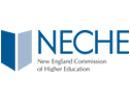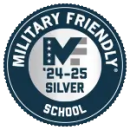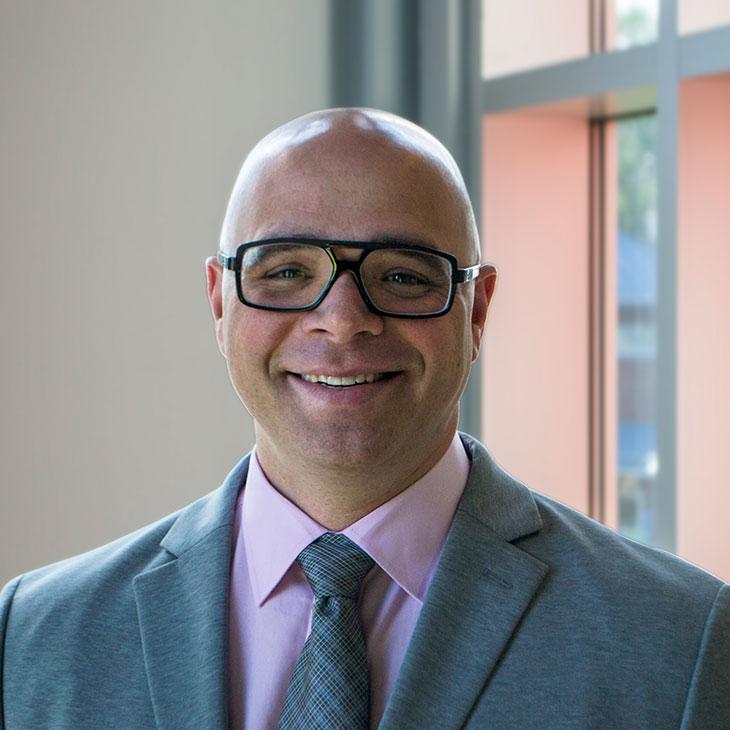Take FINC-150
Shape the Future of Finance
Advance your career with our online bachelor's degree in finance. This program is designed to build your skills in financial analysis, corporate finance, and financial technology (FinTech), combining rigorous coursework with hands-on learning experiences. You'll gain quantitative skills, develop expertise in financial modeling, and learn to navigate the evolving landscape of finance through courses in blockchain and finance, and investment analysis.
Learn how to finish your program faster with credit for prior learning and experience.
Invest in Your Future Career
Distinguish yourself with a comprehensive BS in finance degree that prepares you for a wide range of financial roles. You will learn core principles such as financial accounting, managerial accounting, and corporate finance. The program also emphasizes modern tools like Tableau, SQL courses, and PowerBI courses to ensure you are ready for today's data-driven financial environment. Real-world projects and simulations are integral to the curriculum, allowing you to apply theoretical knowledge to practical scenarios and enhance your analytical thinking.
Program Curriculum
Champlain's online finance bachelors degree courses encompass the top skills needed by today's finance professionals. Graduates of the program are required to complete the following courses.
Professional Courses (48 credits)
General Education Courses (42 credits)
General Electives (30 credits)
Note: Some of the courses in this program are available in 15-week terms only. Please contact your advisor for details.
FINC 150 covers essential topics such as the time value of money, risk and return, financial markets, and financial statement analysis. Students will develop practical skills in evaluating financial performance, making investment decisions, and understanding the role of financial institutions. This course emphasizes real-world applications to prepare students for the responsibilities of financial management.
FINC 225 focuses on the principles and practices of financial management within corporations. The course covers topics such as capital budgeting, capital structure, dividend policy, and working capital management. Students will learn how to make strategic financial decisions to maximize shareholder value, analyze financial statements, and apply financial models to real-world corporate scenarios.
Prerequisites
FINC 275 focuses on the principles and techniques used to evaluate investment opportunities. The course covers topics such as securities markets, portfolio management, risk and return analysis, and various investment vehicles including stocks, bonds, and mutual funds. Students will learn how to construct and manage investment portfolios, analyze financial instruments, and develop strategies to optimize returns while managing risk.
Prerequisites
Take FINC-150
FINC 340 provides students with the skills necessary to build and interpret financial models used for decision-making in finance. The course covers topics such as Excel modeling techniques, forecasting, valuation, risk analysis, and scenario planning. Students will learn to construct models to analyze financial statements, perform investment analysis, and evaluate corporate finance decisions.
Prerequisites
Take FINC-150
Non-Profit Finance focuses on the financial management principles and practices specific to non-profit organizations. Students will learn about budgeting, financial reporting, fundraising, grant management, and compliance issues unique to the nonprofit sector. The course emphasizes practical skills and strategies for managing the financial health and sustainability of non-profit entities.
Prerequisites
Take FINC-150
FINC 410 focuses on the integration of advanced technologies in the financial sector. This course examines how these innovations are transforming financial services, improving efficiency, and creating new business models. Students will learn to evaluate the impact of these technologies on financial markets, institutions, and regulatory environments, and develop strategies for leveraging these innovations to drive growth and innovation.
Prerequisites
Take FINC-150
FINC 450 explores the principles and applications of blockchain technology and its impact on decentralized finance (DeFi). The course covers topics such as the mechanics of blockchain, the function and economics of cryptocurrencies, smart contracts, and the broader DeFi ecosystem. Students will learn how these technologies are transforming traditional financial systems and creating new financial products and services.
Prerequisites
Take FINC-150
FINC 470 is a culminating course where students apply their comprehensive finance knowledge to real-world scenarios through an interactive finance simulation. The course focuses on strategic financial decision-making, risk management, and performance evaluation. Students will develop and implement financial strategies, analyze financial data, and make decisions that impact the simulated business's financial health.
Prerequisites
Completion of 108 credit hours.
The perspectives, beliefs, and preferences of employees in today's workplace are more diverse than perhaps ever before. Today's high-performing managers are those who foster inclusive, positive, and responsive organizational cultures for their people. But with such varied perspectives, what cultural considerations make the most sense for an organization? Management in the 21st Century will teach students how to foster a workplace environment where people can flourish and are motivated to meet objectives and ambitions for the organization.
Accounting is the language of business. This course introduces the student to accounting from the point of view of the user of financial reports and is appropriate for personal as well as business applications. Students explore the impact of transactions on the financial position and profitability of a business, and analyze financial reports of real-world corporations.
Managerial accounting focuses on the needs of management for accounting information to make informed decisions in the internal operations of a company. Topics include decision-making, accounting for planning and control, cost-volume-profit relationships, and budgeting.
Prerequisites
ACCT-130
Business analytics and data visualization transform data into business insights to allow for better decision-making. This course utilizes a combination of existing datasets and common analytics tools to teach new and emerging managers, without backgrounds in data science, how to evaluate data, consider available options, and present a graphical representation of data outcomes for decision-makers.
This course introduces the core terminology and principles of marketing. Students learn about the marketing mix (product, price, place, and promotion), market segmentation, and how external factors such as the economy, technology, culture, and competition influence marketing decisions. The course also examines how marketing fits within an organization and contributes to business success, along with how ethical considerations, cultural awareness, global trends, and social responsibility shape marketing practices across industries. No prior business experience is required.
Project Management is the formal application of knowledge, skills, tools, and techniques to project-based activities to meet organizational requirements. Project management is accomplished through the use of processes such as Initiating, Planning, Executing, Monitoring and Controlling, and Closing. Project managers can divide projects into these phases to provide better management control with appropriate links to the ongoing operations of the organization. Collectively, these phases, known as the project life cycle, form the foundation for the practice of project management and are guided by the Body of Knowledge from the Project Management Institute (PMI).
Students will learn effective workplace negotiation skills and strategies that they can apply in a wide variety of business contexts including operations, business development, sales, and client relations. Students will explore the negotiation process, including identifying the objectives, challenges and motivations of each party, the various transactional structures that can achieve each party's objectives and the ethical, professional, political, and social issues that can arise in a business negotiation.
In this course students will apply strength-based approaches to support organizations through technological disruption. Key topics such as digital disruption, strategic innovation, digital transformation, and ethical considerations when adopting new technologies will be addressed with focus on leveraging strengths to navigate and capitalize on opportunities in times of change. Additionally, students will develop an understanding of how emerging technologies impact industries and business models, and how to navigate technological change to seize opportunities and mitigate risks.
In addition to the following requirements, students must also complete 3 Credits of a General Education Elective (Any ARTS, COMM, CRIT, ECON, ENGL, HIST, MATH, PHIL, PSYC, SCIE, SOCI, MKCM 120, CRIM except CRIM-225)
This course introduces students to the foundational concepts needed to communicate effectively in writing for academic study and professional development. Students will also learn to read critically to evaluate an author's message. Students will be introduced to rhetorical modes and their role in the development of written communication. Students will also learn how to use revision strategies to create written communication that meets its intended purpose for its intended audience
This course builds on students' proficiency in the writing process and rhetorical modes to introduce the use of sources in written communication. Students will practice information literacy as they learn to determine information needs from sources, develop effective search strategies, and incorporate sources in written communication, legally and ethically.
Prerequisites
Complete ENGL-100
Starting with a frame of human communication as a dynamic system of interactions in which people make choices that impact their relationships, other people, and themselves, students will define theory-informed communication concepts and processes, and critically examine how they apply to everyday life across a variety of contexts. Students will reflect on how the theory, concepts and processes apply to their own lives in becoming competent communicators who are knowledgeable, skilled, and versatile.
This course examines the principles of effective small group interaction. Students will analyze group development stages and small group roles. They will identify and evaluate communication skills that enhance small group cohesion and problem-solving. Students will explain how conflict affects group processes and compare face-to-face versus digital collaboration environments. These skills prepare students to participate effectively in group settings across academic, professional, and community contexts.
Students will learn and apply critical inquiry skills to analyze persuasive communication created by others and to develop persuasive communication/arguments of their own to solve problems in professional, civic, social, and personal contexts. Specifically, students will learn to recognize fallacies in logic; apply inductive and deductive reasoning strategies to the interpretation and development of persuasive communication; evaluate the validity of sources; and develop logically sound persuasive communication. Students will explore the roles of self-awareness, empathy, and ethics in the context of critical inquiry and the development of arguments.
Prerequisites
Complete ENGL-110.
This course is an historical overview, and examination of the evolution of digital, film, and print media, and their functions. Students will identify and analyze contemporary problems of the media such as the legal, social, economic and psychological implications of their relationships with society. They also will examine the ways in which marketing and PR professionals utilize the mass media channels to reach their intended target audiences.
This course explores the complex and evolving relationship between human beings and technology. Through a multi-disciplinary approach that draws on fields such as sociology, psychology, philosophy, and history, students will examine the ways in which technology has shaped human culture, identity, and values, as well as how humans have influenced and continue to influence the development, adoption and use of technology.
This course introduces students to basic statistics for data literacy. With a focus on exploring real-world data, students will interpret numerical information and utilize the tools necessary to complete the entire statistical process: designing a study; gathering, organizing, and analyzing sample data; and making inferences about a population. Students will demonstrate data-driven decision-making and effective communication of numerical data.
Introduces students to the biochemistry and physiology of nutrition and exercise. Emphasis will be placed on human body systems such as musculoskeletal, digestive, respiratory and circulatory, and their relationship to nutrition and fitness. Students will also study the biochemistry of energy conversion as it relates to exercise physiology. Laboratory sessions are designed to reinforce, by a hands-on approach, the principles discussed in lecture. Course includes two laboratory hours per week.
Students will develop the ability to apply scientific methods to understand the natural world, to identify scientific aspects of daily life, and to evaluate the quality of scientific information based on its source and the methods used for its generation.
In this course, students will gain an introduction to classical mechanics and learn about motion, force, energy, and momentum. The course covers vectors, scalars, and coordinate systems, as well as kinematics in one and two dimensions, Newton's Laws of Motion, circular motion, and kinetic energy and work. Students also learn about potential energy and energy conservation, collision theory, rotational motion, moment of inertia, torque, rotational dynamics, and angular momentum.
This course will introduce students to major streams of social justice thought, including historical social justice movements, theoretical problems having to do with social equality, personal freedom, marginalization, and stigmatization, and the ways in which civic and professional communities respond to these issues.
With pressure and release, a window opens and closes, recording light on a sensor. The simple action captures the instinct, judgement, and skill of the person behind the lens. This class will begin a study of the art and craft of photography. Students will develop their vision and their understanding of how to achieve it. Solid skills will be learned and many doors will be opened.
A survey of the continuing change experienced in art since the 15th century. Students will examine how an image is achieved as well as the significance of the subject represented. Individual inquiry concerning the nature of art is encouraged.
Students learn to appreciate films through the critical analysis of various elements of mise-en-scene, cinematography, editing and sound. The course introduces the conventions of classical Hollywood cinema, considers the work of one major director (auteur), and surveys selected international and independent films. Students view and discuss films each week.
Students in the course will explore the cultural history of the music genre broadly referred to as rock. Students will explore the social, economic and political contexts that are influenced by and that influenced each style in the United States. By listening, watching, reflecting upon, discussing and writing, students will explore how music takes on meaning, personally, and culturally. Topics and themes include the relationships between and among gospel, country, funk, folk, disco, rap and hip hop; the role of business and technology in those relationships, and political or transgressive elements of rock music.
Specific application of common tools for writing in the working world. Students will be instructed in rhetorical strategies of professional writing including style, report formats, editing, document design, and integration of visual aids. Students will complete a semester-long writing project; oral and written reports associated with the process of problem-solving within the project will be included.
Prerequisites
ENGL-112 or COR-125
Students will learn how to create conditions for successful conflict engagement, a necessary skill for any professional. The course focuses on the foundational capacities to remain calm and connected with oneself and others. In this state students can access helpful ideas and responses and be their best selves regardless of environment. Improving facility for conflict creates stronger relationships and reduces fear. By the end of the course, students will understand that disagreement and difference can become a source of personal and interpersonal growth.
In this course, students will explore and apply writing principles and techniques to effectively interpret and write technical workplace materials. Students will enhance and gain skills to communicate business and technical information by producing instructions, describing processes, applying document design elements, creating and integrating illustrations, researching and writing proposals and formal reports, and presenting content for decision-makers.
This course introduces students to the fundamentals of substantive criminal law. With this foundation for understanding the legal system students will identify the essential elements of crimes, including the criminal act, criminal state of mind, and jurisdiction. They will examine the rationale underlying criminal law, factors affecting criminal responsibility, and legal defenses. By analyzing real-world scenarios, students will develop skills to distinguish lawful from unlawful actions and prepare for advanced studies or careers in criminal justice.
This course focuses on the rules and procedures governing how the American criminal justice system must process individuals suspected, accused, and convicted of law violations.
In this course, students will explore the theory and fundamentals of criminal investigation, emphasizing practical applications for evidence handling and case development. Students will review basic responsibilities of investigators and protocols for report writing, evidence collection, and preparation of cases for trial. The curriculum examines investigative approaches for various crime categories, including violent offenses, property crimes, terrorism, and hate crimes, while introducing comparative perspectives from diverse legal systems.
Prerequisites
Take CRIM-120.
Students will study important themes in the social history of the United States since the Civil War. This course allows students to expand their critical thinking skills through an examination of primary and secondary sources. Themes might include: the evolving status of women; the immigrant experience; the concept of the American dream; the paradox of freedom vs. slavery; the minority experience; the tensions between social classes. Students will be evaluated primarily on writing assignments.
In this course, students will explore broad, foundational knowledge in psychology, including its history, major theorists and a survey of psychology subfields such as developmental, cognitive and social psychology. Students will also describe and assess the role of ethics and social responsibility in the study and application of psychological theory and practices.
In this class, students will explore how social relationships, groups, societies and culture develop and change over time. From a sociological theory foundation and employing the sociological imagination, students will examine the impact of social structures, institutions, and systems on individual lives. Students will apply sociological research methods to investigate sociological phenomena in their own lives.
Additional Program Details
Graduates of the finance bachelor's online program will acquire and demonstrate the following industry-specific skills, knowledge, and competencies:
- Apply financial principles to drive the creation of value in an organization.
- Utilize emerging financial technology for efficient and accurate data analyses, simulations, and modeling.
- Assess financial conditions and markets to enhance strategic financial decisions.
- Integrate general business knowledge with advanced fintech skills to support financial decision making and develop strategic solutions that drive organizational growth and efficiency.
Our admissions team seeks to admit students who:
- Demonstrate a solid academic foundation - a minimum 2.5 GPA is our recommendation, though exceptions may be made on a case-by-case basis for those who demonstrate a potential for academic success in other ways.
- Possess an aptitude for success in an online learning environment.
- Exhibit the ability to make a positive contribution to the Champlain College Online community.
To learn more about submitting transcripts, or requirements for home-schooled students, those educated abroad or returning students visit our Undergraduate Admissions page.
Our transfer credit evaluation team works hard to ensure you get the transfer credits you deserve, from a variety of sources including prior college credits, work experience and training, military training and experience, and more. Our goal is to help you graduate from Champlain College Online as quickly and affordably as possible. Visit our Transfer Credit Options page to learn more.
Champlain College Online's business faculty, led by Department Chair Dr. Albert Orbinati, are expert practitioners in the field. Their industry expertise ensures that our business management curriculum is aligned with the needs of employers, and reflects the skills today’s business professionals need for success. Classes led by our seasoned experts will give you real-world insight into the business world, and create a rich community of career-focused learning.
Tuition & Costs
Online Undergraduate Tuition Fall '25 - Summer '26
Tuition & Costs
Online Undergraduate Tuition Fall '26 - Summer '27
* Alumni is defined, for this tuition rate, as any degree program graduate from Champlain College or Champlain College Online.
** Veteran rate effective Spring 2025, not retroactive
See the undergraduate cost of attendance and fees here
Affordability and Paying For Your Education
We provide a number of options to make your online education affordable, including preferred tuition for alumni, associate degree graduates, community college graduates, and military.
What Can You Do With a Bachelor's in Finance?
Careers in finance are in high demand, with over 3 million positions nationwide requiring skills from a finance background, including nearly 350,000 financial managers. The job market for finance professionals is projected to grow 8% over the next decade, reflecting the increasing importance of financial management across all sectors. Graduates with a BS in Finance can expect a median annual salary of around $76,570 for financial analysts and higher for roles such as financial managers, which can reach a median salary of approximately $131,710.*
*Sources: Bureau of Labor Statistics, 2024
Top Jobs for BS in Finance Graduates
- Financial Analyst
- Corporate Financial Manager
- Investment Banker
- Risk Manager
- FinTech Specialist
- Portfolio Manager

Why Champlain
Career Growth
"I had a two-year degree and knew I would need a bachelor's to advance. I saw that the U.S. Department of Labor projected a high demand for employees in accounting, and Champlain is ranked one of the top schools for accounting, so it was the right fit."

Academic Excellence and Recognition

Regionally accredited by the New England Commission of Higher Education

Designated as a Military Friendly School for our commitment to the military community
Ranked among the best by Tech Guide for game design and computer science

Named the among the best schools with accelerated bachelor's degrees by Intelligent.com
Meet the Program Director
Albert Orbinati, PhD
- Accounting (Certs, AS, BS, MS)
- Analytics (Certs, MS programs in Business, Finance, and Healthcare)
- Business (Certs, AS, BS, MBA)
- Finance (Certs, AS, BS)
- Healthcare (Certs, AS, BS, MS)
- Human Resource Management (Certs, AS, BS)
- Leadership (Certs, MS in Org. Leadership, MS in Digital Transformation Leadership)
- Management Information Systems (BS)
- Positive Organization Development (Certs, MS in Positive Org. Psych & Development)
- Project Management (Certs, MPM)
- Public Administration (Certs, MPA)
About
Dr. Albert Orbinati is an Associate Professor of Business and Department Chair for Business Programs at Champlain College Online. He has been teaching for over 20 years.
Prior to Champlain, Dr. Orbinati's roles have included Assistant Vice President of Online Learning and Continuing Education at Medaille University, Dean of the School of Professional and Continuing Education at Russell Sage College, and Director of Online and Non-Traditional Programs at Utica University. In addition to his career in higher education, Albert is a member of the US military and currently holds the rank of Lieutenant Colonel in the Vermont Air National Guard.
Dr. Orbinati holds a BA in Urban Planning from Binghamton University, an MA in Adult Education from Central Michigan University, an MBA from Champlain College, and a PhD in Adult Education from Capella University.

FAQs: Online Bachelor's Degree in Finance
This online BS in Finance program can teach you a mix of foundational skills and modern tools that keep the financial world moving. Coursework teaches hands-on learning in financial analysis, technology, quantitative expertise, blockchain, and more. With projects that simulate real-world scenarios, you can learn how to apply your education in professional practice.
This bachelor’s in finance teaches a variety of essential FinTech tools, such as Tableau, SQL courses, and Power BI, to help you quickly adapt and thrive in modern finance careers. With the guidance of expert faculty, you can learn how to use FinTech to enhance your abilities and expand your cross-functional skills.
Yes! You can transfer your credits from our undergraduate Certificate in Finance program into this online BS in Finance program. If you have credits from another Champlain College Online program or another college, contact us to learn which credits may apply toward this BS in Finance. We will do everything we can to make your path towards a degree and a new career as efficient as possible.
You May Also Be Interested In
Get Your Finance Program Guide
Learn what you can expect from our online bachelor's in finance program.

Download Program Guide
I acknowledge that, by clicking the "submit" button, I am giving my express written consent to Champlain College and its representatives to contact me about educational opportunities via email, text, or phone, at the phone number above, including my mobile phone, using an automatic dialer, or pre-recorded message. Message and data rates may apply. I understand that my consent is not a requirement for enrollment, and I may withdraw my consent at any time.






